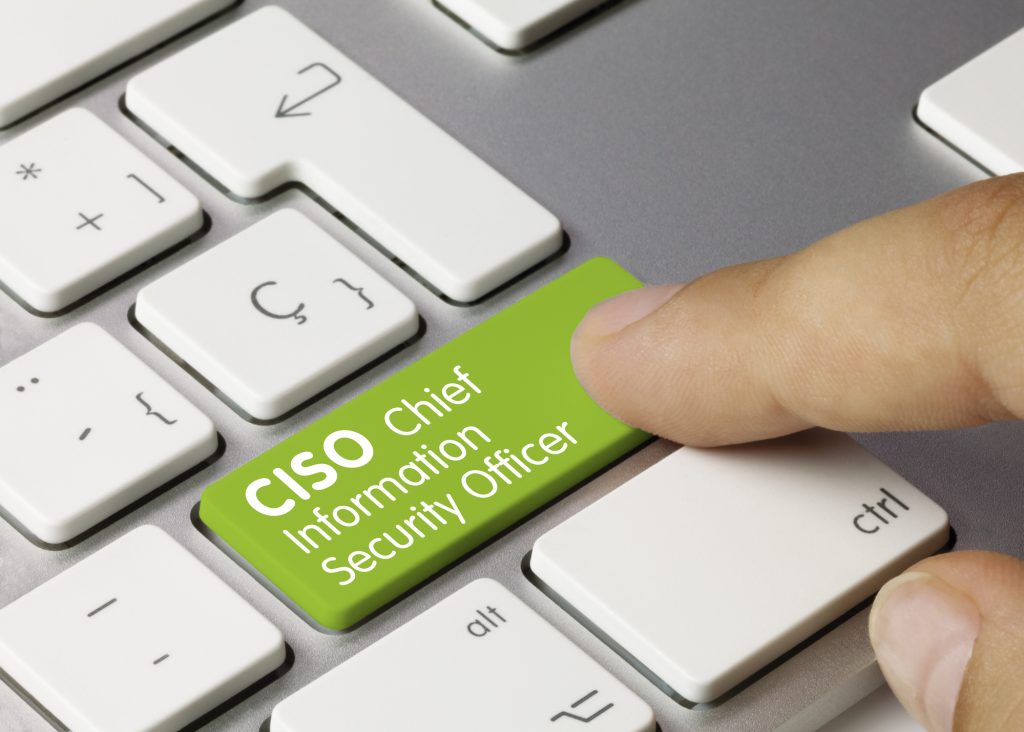- October 12, 2023
- Catagory Security
Augment Your Security Expertise with a vCISO
Small and medium-sized businesses rarely have a large C-suite, let alone an exec dedicated to security, but a virtual chief information security office (vCISO) is an affordable way to bolster your ability to deal with cybersecurity threats.
Tapping the expertise of a vCISO can complement your IT team, which is likely a small group of people who wear many different hats. As a part-time consultant with full-time security experience, a vCISO can work with you, usually via your managed service provider (MSP), and has a dedicated focus on improving and managing your cybersecurity.

An MSP with a focus on security will always start their engagement with a security assessment, and that’s where an vCISO can first step into their part-time role. The assessment by your MSP will help it find the right person to manage security in the context of your business, including your existing expertise and skills.
What makes a vCISO an affordable option for smaller, leaner organizations is that you can purchase their time based on your business needs. You may pay them hourly, or for a set number of days a week or month – like cloud services, a vCISO can scale their availability up or down as needed. They can be on-site or virtual, or a mix of both.
No matter how many hours they work, a vCISO always brings with them a great deal of cybersecurity expertise as well as knowledge from across different industries, which they can apply to the realities of your business. You get a fresh set of eyes assessing your security posture through the lens of risk management. A vCISO will spot issues that may have eluded your IT team because they’re busy in the trenches every day.
By engaging a vCISO, you have access to an experienced executive without the high annual salary of a full-time CISO. Working with your MSP to onboard a vCISO also eliminates all the time and expense of finding someone to take the role. Competing for cybersecurity talent is especially challenging today.
Most of all, a vCISO allows you take a long-term, strategic approach to your security so that you’re always re-evaluating your posture, oversee incidence response and disaster recovery planning, and adjust in response to a dynamic threat landscape.
- March 28, 2023
- Catagory Human Resources
Employee Burnout Threatens Cybersecurity Resilience
Attracting IT talent, especially cybersecurity experts, remains a challenge even amid layoffs, but so is keeping them. The last thing you want to do is contribute to employee burnout.
It’s just as big a threat as the growing number of cybersecurity threats as your IT teams struggle to do more with less after a tumultuous three years due to the waning pandemic. Employees of all stripes are experiencing burnout, which as defined by the World Health Organization (WHO) is the result of chronic workplace stress that has not been successfully managed.

The solution can be found in the WHO definition; employee burnout can be managed, even when it affects your cybersecurity staff.
Detect the signs of employee burnout
In the same way you want your cybersecurity to be proactive and detect anomalies before they become a major incident, employee burnout can not only be managed, but also prevented so that IT teams can remain engaged and avoid exhaustion.
For cybersecurity professionals in particular, workplace stress stems from the nature of the work – their environments are always active because the organization is constantly under threat. It means handling alerts throughout out the day to prevent and mitigate threats while also ensuring that long-term strategic security initiatives are met. Just making sure the security operation center is adequately staffed off hours causes stress and contributes to employee burnout. You need to make sure you have people available on-call while also giving everyone enough time to wind down if you’re to prevent burnout.
At the end of the day, employee burnout within your cybersecurity team can pose just as big a risk to your security posture as threat actors trying to compromise your IT infrastructure.
Cybersecurity resilience depends on people
Just like potential security risks, employee burnout has warning signs. Chief among them is the phenomenon of quiet quitting – that’s when staff experience depersonalization and increased cynicism. They will also feel emotionally depleted and feel as though they’re being less effective.
Employee burnout can affect the entire cybersecurity team, regardless of their role, and lead to actual quitting. A single, small incident can be the tipping point after prolonged periods of stress on the job – cybersecurity staff are constantly in “fight or flight” mode, and it’s ultimately unsustainable.
Just as you mitigate cybersecurity vulnerabilities, you want to prevent employee burnout – prevention is worth a pound of cure. You need to build up psychological resilience among your team by ensuring your team is confident they can handle what comes there way and being able to adapt to changing situations.
And no matter their job role, your employees need to have a clear sense of purpose as well as adequate social support – trust and relationships are especially important for cybersecurity team if they are to avoid burnout. It also started from the top – if you’re leading your IT staff or a security team, you need to take care of yourself – if you’re depleted, everyone else will feed off of that. Building up your own psychological resilience and instilling the ability in others will boost morale – preventing employee burnout is both about personal responsibility and team effort.
Technology does play a role, too. If your cybersecurity team doesn’t feel they have the right tools for the job, it will contribute to their disengagement. And if they feel they’re understaffed and doing more than their fair share, they’re going to look for greener pastures rather than work harder to compensate for the staffing shortage.
Exploiting automation as much as possible will allow your employees to focus on more rewarding activities and will reduce their stress – they will feel as though they are spending time on projects that that truly matter. Turning to a managed service provider who can take on some responsibilities and complement your cybersecurity team can also alleviate the pressure and further reduce the likelihood of employee burnout.




 Latest Blogs
Latest Blogs FAQ
FAQ